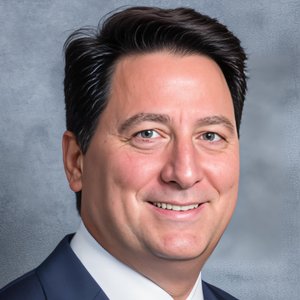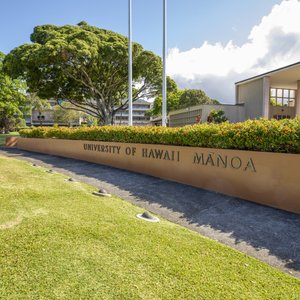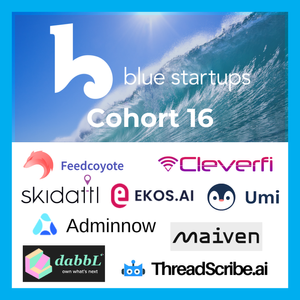While Hawaii may not pull the same level of national attention for its startup ecosystem that other places do, there’s no shortage of innovation happening across industries throughout the Islands. This roundup for Pacific Business News’ second annual Startups to Watch is proof of that.
To compile this list, PBN considered recommendations from local incubator and accelerator programs, the recent growth and accomplishments of each business, and their plans for the year ahead.
Here, meet 11 companies that are poised for big things in 2023.
Chewbox
While food service software startup Chewbox has its roots in California, where it launched in 2020, the company moved operations to the Islands in 2021 and aims to make an impact on the local market this year.
Co-founder Kim Gaston was inspired to create Chewbox after seeing the limited time that schoolteachers had to eat lunch, and the venture began in Los Angeles, focused on teachers working in food deserts.
“Chewbox built software that allowed them to schedule chef-quality, healthful meals that arrive before their bell rings, and soon realized the tremendous cost savings included with a calendar-based model,” said Jamila Jarmon, COO and general counsel. Chewbox “supports an on-schedule methodology,” she said, with the goal of reducing the cost of manufacturing, distributing and purchasing meals.
To date, it has raised $2 million in seed funding. Last fall, the company was awarded $100,000 in cash funding, along with other resources and support, from the Google for Startups Black Founders Fund.
Among the company’s priorities this year is building partnerships with local culinary entrepreneurs.
“Right now, our work in Hawaii has been focused on the adoption of the Chewbox software through food service providers and corporations,” Jarmon said. She noted that the company is exploring the potential for new projects in ghost kitchens — facilities that prepare restaurant-style meals for direct delivery to consumers — as well as partnerships with “food service providers looking to move to an on-schedule model, and corporations looking for options to utilize their commercial kitchen space in new innovative ways.”
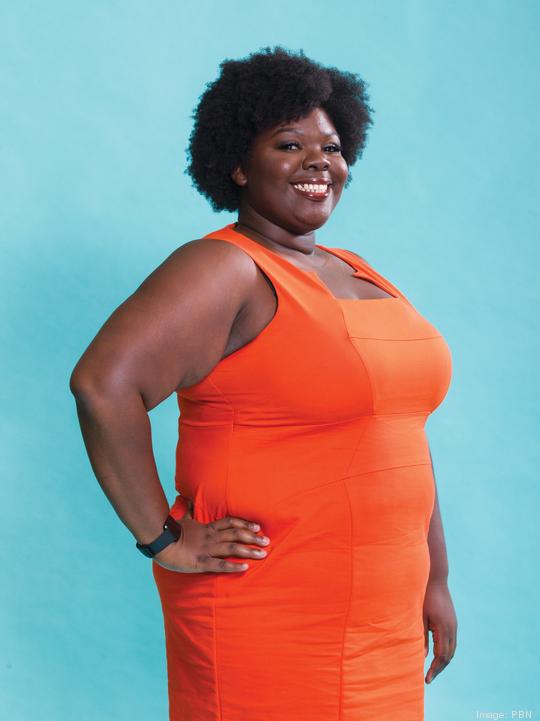
GameDevHQ
As a self-taught software engineer, Jonathan Weinberger knows first-hand the challenges that come with breaking into the tech industry.
“I struggled for years before things began to click and I didn’t have the means to go to traditional schooling like most [computer science] degrees,” he said. “I wanted to create a pathway for those transitioning in their careers and help people land new rewarding careers as software and game developers.”
To that end, Weinberger launched GameDevHQ in 2019 to provide hands-on training in game development as a gateway into careers in software engineering, virtual reality and more.
GameDevHQ has had students from all over the world, but its local operations run deep. During the pandemic-related shutdowns, it worked with the Oahu Economic Development Board and the state government to help people who were out of work learn new skills — and possibly start a new career.
“Today we have over a dozen students that started off as bartenders and hospitality workers and now earn $85,000 or more working fully remotely here in Honolulu as software engineers for Mainland companies,” Weinberger said.
Last year, GameDevHQ partnered with local nonprofit TRUE, or Technology Readiness User Evaluation, to provide educational programming for students at the TRUE Esports + Tech Lab at Waipahu Public Library.
“This year we’re looking to continue our employer partnership development and continue to line up job opportunities for our students,” he said. “We’re also hoping to expand our training initiatives here in Hawaii and help continue to upskill the local community so they can prosper here at home.”
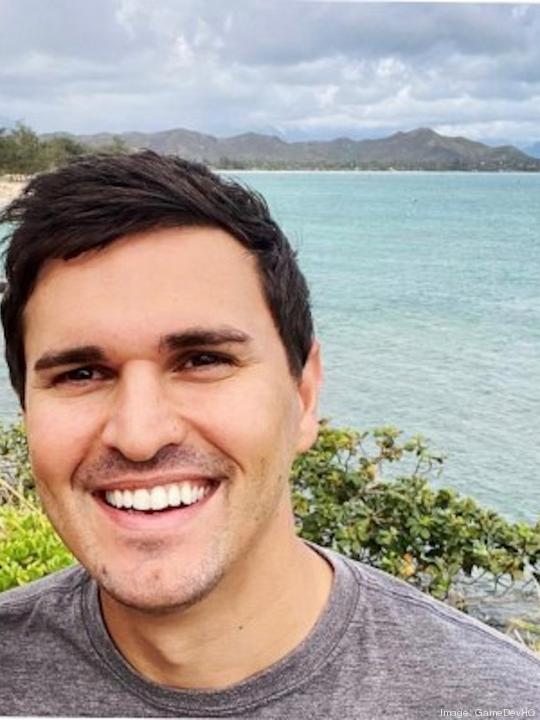
Hawaii Innovation Laboratory
While he was earning his Ph.D. and post-doctorate degrees at the University of Hawaii at Manoa, Arif Rahman came up with various inventions alongside a group of other researchers, and they founded Hawaii Innovation Laboratory in 2020 as a way to commercialize their projects.
“Also, we wanted to create high-tech research and development job opportunities in Hawaii,” said Rahman, the company’s CEO who also teaches engineering at UH and Hawaii Pacific University.
“Our mission is to engineer disruptive solutions to tackle high-tech challenges that improve lives locally and globally. … We aim to save lives and positively impact the lives of underserved people through technology and innovation,” he added.

Hawaii Innovation Laboratory is developing a new liquid coating for solar power mirrors, with the goal of reducing manufacturing costs. The company has garnered national attention for the technology, but it also has a list of several other inventions, including a personal cooling system geared toward workers in high-heat environments, a portable oxygen system, and a solar-powered water desalination tool.
“This year’s priority is to raise private investment to accelerate product development and commercialization,” Rahman said.
Nimbus AI
Comprised of a group of computer science and climate experts, Nimbus AI uses machine learning and satellite data to provide solar forecasting.
“Solar power is a key component of the United States’ transition to a low-carbon electricity mix, but its production volatility due to weather factors makes it increasingly difficult to achieve higher levels of electricity grid penetration,” said Nimbus AI CEO Geoff Galgon. “These challenges are particularly prevalent in smaller isolated grids like Hawaii.
“Our goal is to support the clean energy transition by developing superior solar forecasting systems as critical tools for supporting grid management, price stability, and system resilience across the U.S.,” he added.
The company originally emerged from a Hawaiian Electric-sponsored innovation forecasting challenge, and in addition to Galgon, the Nimbus AI team includes Peter Sadowski, an assistant professor of computer science at the University of Hawaii at Manoa who specializes in machine learning; Giuseppe Torri, a theoretical and atmospheric physicist at UH Manoa; and Kyle Hart, a Ph.D. student who studies satellite data processing.

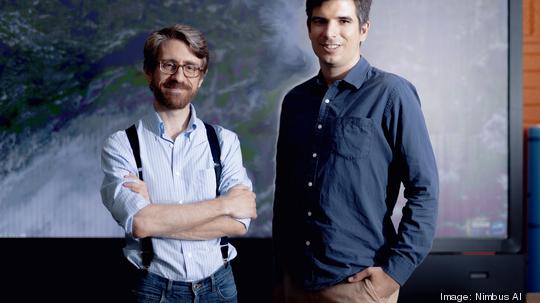
Last year, the company was among winners in a national solar forecasting challenge — for which it took home a $50,000 prize.
“Our main goals for 2023 are: 1) achieving commercial sales of solar forecasting and adjacent data products, 2) continued pilot evaluations with partners to demonstrate value-add, and 3) significant equity investment and expansion of our team,” Galgon said.
“We believe that solar forecasting is not only an important tool for large-scale electricity customers like utilities, power producers, and grid-scale storage facilities, but is rapidly becoming a critical input to optimization algorithms for smart batteries, smart inverters, and other solar-plus-storage and [electric vehicle] systems at the residential and commercial scales. In 2023 we also hope to work with innovators in these distributed energy resources and residential electricity spaces.”
Pawniolo Pets
As Miki Vericella tells it, before raw pet food brand Pawniolo Pets was a business, it was just the way of life for her family.
Her husband, Nick Vericella, is a third-generation cattle rancher, and the couple has been creating fresh pet food utilizing grass-fed animals raised on their Hawaii Island land to feed their dog for years.
“We valued growing our own food and knowing that the food we are giving our family was fresh, nourishing, and close to home. We extended those values to our furry family members,” Miki Vericella said.
The venture grew organically through social media.
“Soon we had friends and friends of friends reaching out to us. That’s when we saw there was a definite need in our community for this,” she said.
The goal is to provide healthy, nutritional food to pets, while supporting the local ranching industry.
“We feel extremely proud when we run into a fellow rancher and they tell us that they have cattle to sell. This might sound silly to some, but it’s a reminder that we are doing something for our community and that our business is supporting our small ranching town,” Vericella said.
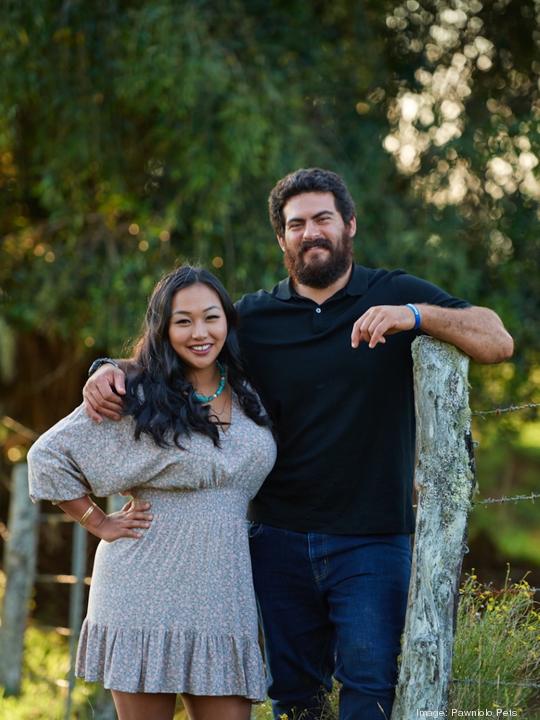
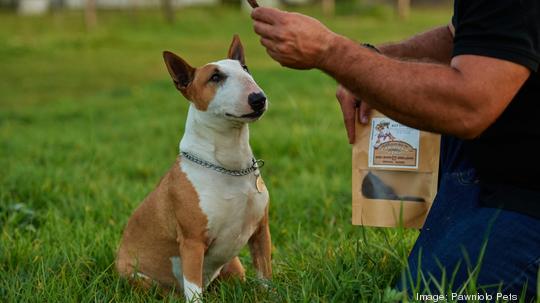
The Vericellas launched the company in 2019, and last year, they were recognized by the Hawaii Venture Capital Association as the Agriculture Entrepreneurs of the Year.
Vericella said Pawniolo Pets has received a total of $88,000 in funding since its inception, including loans from Kiva, a global crowdfunding nonprofit, and Shopify, an e-commerce platform.
“All other operational costs have been self-funded. We try to put any money made back into improving our business while we are in these early stages of growth,” Vericella said.
This year, the company is working on increasing efficiencies across its operations, with the goal to double its production and expand into new markets.
“We also want to focus on rebranding and updating our current packaging to be more eco-friendly and sustainable. We have a goal to also order home compostable thermal shipping supplies in bulk so that we will be able to ship our frozen goods directly to our consumers,” Vericella said. “We hope to be able to order these supplies in large quantities so that we can be a source for other small businesses in Hawaii to be able to ship their perishable goods as well.”
Pear Suite
Colby Takeda spent more than a decade working with seniors as an administrator of assisted living facilities and recreation programs, so when the pandemic hit, it was natural that he stepped in to support socially isolated older adults.
He partnered with Dr. Christy Nishita of the University of Hawaii Center on Aging to connect students with seniors for weekly phone or video chats where the intergenerational pairs would discuss hobbies, their families, and more. Through the program, Takeda was later contracted by the state Department of Health to conduct outreach about Covid-19 vaccinations to older populations.
“While on these calls, we heard about other hardships that families were facing, from food insecurity and an inability to pay bills to sedentary lifestyles and loneliness,” he said. “The growing challenges forced our team to broaden our scope of work, providing care navigation services for all the social determinants of health.”
That work evolved into Pear Suite, a technology company that now licenses its software platform to more than two dozen organizations. As Takeda explained it, Pear Suite enables “users — community health workers, non-licensed healthcare staff, and volunteers — to become care navigators and address the health-related social needs.”
“With our platform, more organizations can provide culturally and linguistically appropriate outreach, track goals and outcome measures, and better understand the needs of their population,” he said.
“Since launching in March of 2021, we’ve been able to train over 50 care navigators and impact over 20,000 lives, many of whom we’re continuing to support with ongoing navigation and wellness check-ins. We’re continuing to help residents get vaccinated, but also helping them enroll in Medicaid benefits and food stamp programs, assisting with the affordable connectivity program registration, and addressing other health and social service needs with referrals and education.”
Starting out, the company received funding from various Pacific Asian Center for Entrepreneurship programs at the University of Hawaii Shidler College of Business, where Takeda earned an MBA. At the end of last year, Pear Suite secured $2.5 million from investors.
Currently, Takeda said the company is “laser focused on listening to our customers, iterating constantly, and providing the best product experience possible.” He said the company aims to reach 300,000 people this year.
“Now, more than ever before, there is a need and desire to address health inequities by improving the social determinants of health. Pear Suite is ready to empower more care navigators with our technology to become healthcare heroes!”
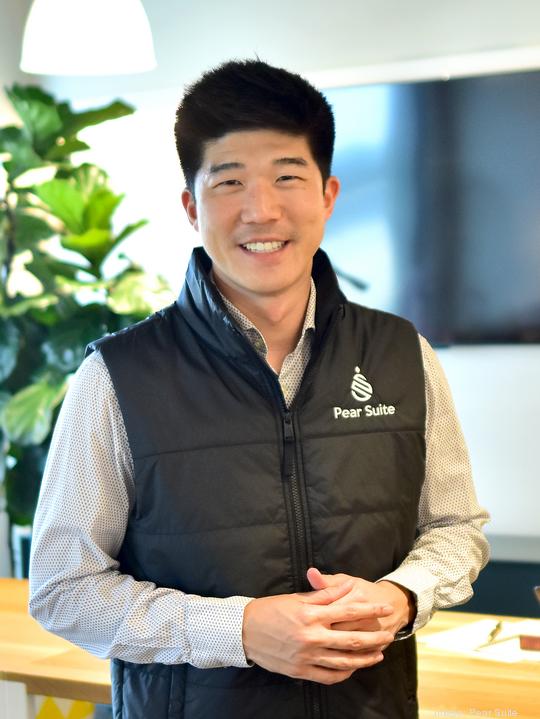
Piko Provisions
When Ethan West thinks back on why he created baby food company Piko Provisions, he said the origins are rooted in “a perfect storm of factors.”
“Having worked in agriculture and food production my entire life, I also became an uncle in 2019 while a national study revealed that 95% of baby food tested contained alarmingly high levels of toxic chemicals that can detrimentally impact the lifelong health, IQ, and wellbeing of our children,” said West, the company’s founder and CEO. “Hailing from six generations of family farmers and starting a family of my own, I knew we had to do better.”
He launched Piko Provisions in late 2020, with the goal of providing a healthy baby food alternative while supporting local agriculture. The company sources Hawaii-grown fruits and vegetables — including taro, Okinawan sweet potato, banana, breadfruit and pineapple — and its products are all-natural with no artificial ingredients. Piko products have received purity awards from the Clean Label Project, certifying that they are free of toxins and other substances.
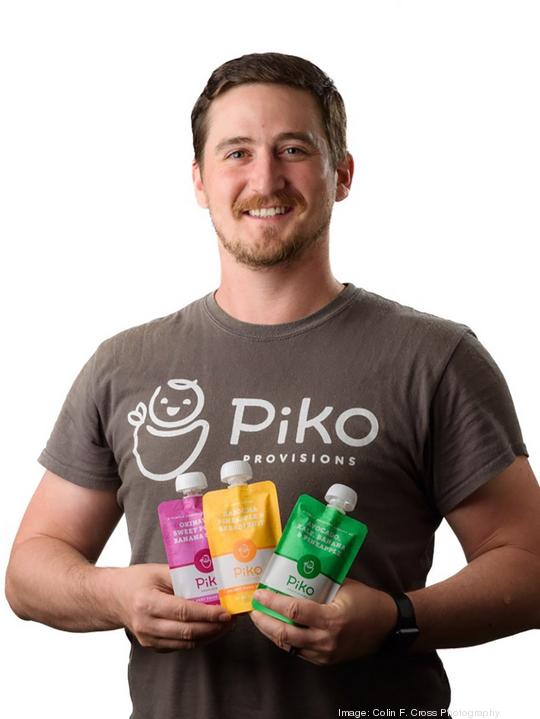
West said Piko’s first production run was funded largely through a crowdfunded loan on Kiva, and other funding has come through personal investments, grants, and reinvested operational revenue, as well as in-kind time and talent. Altogether, the company has received, invested and reinvested over $900,000 in cash value and services. Now, he said, they are about to launch additional fundraising efforts.
The company has racked up numerous successes during its two years in business, including growing its list of statewide farming partners to more than 300. And with the recent addition of CVS/Longs Drugs as its newest retail partner, the company now has expanded to over 200 retail locations throughout the state.
“It’s all about access and being available to everyone where they are going to buy food for their families,” West said, noting that Piko can be found in stores that range from 7-Eleven to Whole Foods.
Looking ahead, he said the company’s main goals this year are “centered around increasing community access to healthy local food.”
That will entail expanding to new channels and with new products. West said Piko plans to seek federal approval to become an eligible product for the Special Supplemental Nutrition Program for Women, Infants, and Children, better known as WIC, and the company is in the process of developing new items — including purees, finger foods and drinks — to service additional institutional markets such as schools, hospitals and daycares.
Reeler
Lauren Pierce and Spencer VanDerKamp came up with the idea for Reeler, an app that connects small-scale fishermen directly to consumers, when they were in their early 20s and still students at the University of Hawaii at Manoa.
The pair worked part-time as commercial fishers while in school, and as VanDerKamp recalled, they noticed “inefficiencies in the seafood supply chain.” Plus, he said, they were tired of seeing “the low and variable prices we got for our catch compared to how expensive the fish was selling for at retail. We would often see our catch get marked up over 1,100%, due to the convoluted seafood supply chain.”
In response, they began selling their fish directly to consumers. As their list of buyers grew, they began to help other fishers sell their catch, and they conceptualized Reeler as an app-based marketplace.
The pair initially funded the app in part through prize money they won as finalists in the UH Venture Competition, and they officially launched in 2021.
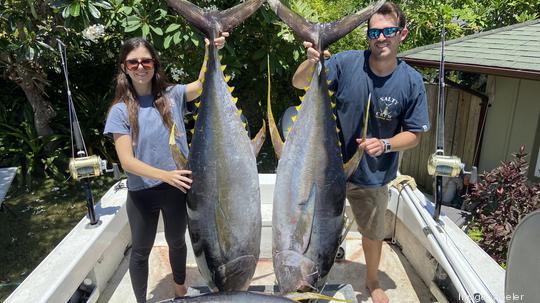
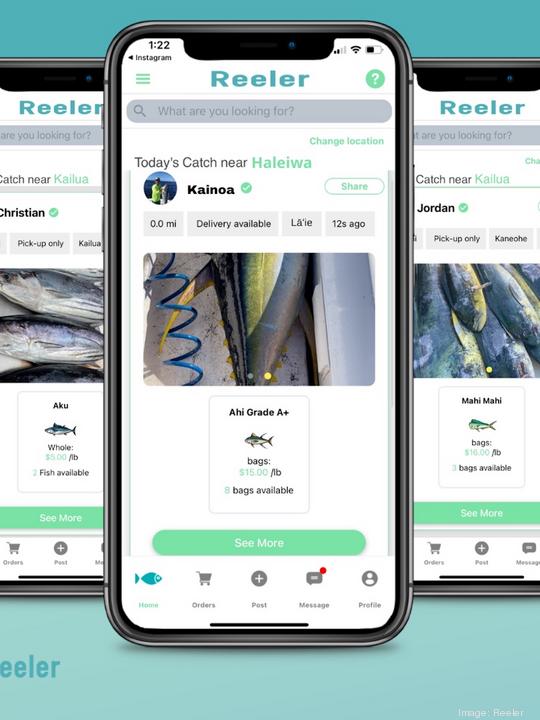
The company has received a total of about $90,000 in funding — which includes grants from the Pacific Asian Center for Entrepreneurship at UH Manoa and the Sustainable Ocean Alliance, as well as investments from sources that include UH’s Calvin Shindo Student Venture Fund.
But VanDerKamp said the achievement they’re most proud of is giving a boost to the local fishing industry.
“We have been able to help responsible fishers earn three times their average earnings compared to traditional outlets, while helping locals get access to super fresh seafood that was caught using the most eco-friendly fishing methods,” he said. “This gives Hawaii residents another way to shop local, while voting with their wallet for sustainably harvested food.”
Currently, the pair is continuing to grow Reeler’s reach in Hawaii, matching more buyers and sellers in more areas. Beyond the Islands, they are also gearing up to expand to Florida.
“We had a few Florida near-shore fishers and stone crabbers reach out who found Reeler on social media,” VanDerKamp said. “They were super interested in using the app to help facilitate direct-to-consumer sales so they could earn more for their catch compared to selling to wholesalers.”
He said they are working on a few updates to the app and are aiming to launch in two Florida cities within the next few weeks.
Shaka Guide
For Shaka Guide, which creates self-guided audio tours, 2022 was a big year.
After launching the app in Hawaii in 2016, husband-and-wife team Andrew and Rita Fowers debuted six tours for various sites in Utah last April, marking their first tours outside of the Islands. They then went on to launch a total of 20 new tours in places including Joshua Tree, the Hoover Dam and the Grand Canyon.
When asked about their plans for this year, Andrew Fowers said this: “Buckle up because it is going to be an exciting year for Shaka Guide!
“We’re hoping to continue our momentum from 2022 by launching 30 new tours across the country this year. These will be in national parks and scenic drives like Yellowstone, Yosemite, Grand Tetons and Blue Ridge Parkway,” he said.
The organization has received funding from Blue Startups, MajiConnection, Chiba Dojo and other angel investors from Hawaii and Japan totaling $500,000.
Fowers said he and Rita first came up with the idea when they were working as tour guides on Oahu.
“We realized that travelers who took a guided tour left with a deeper connection to the island,” he said. “They learned about Oahu’s history — and we felt that price shouldn’t be a barrier to having a guided tour experience. All travelers should be able to learn about the places they’re visiting because every place has a story to tell. And that’s why Shaka Guide was born — to connect people with places through stories.
“Of course, with Covid, travel behavior has changed and people are looking for more self-guided tour options in Hawaii and beyond. Our mission is to provide self-guided audio tours for the everyday person that connect stories with places that entertain, educate, and guide travelers in responsible ways while giving back to the community.”
To that last point, Fowers said one of the things they are most proud of is the company’s give-back initiative, where customers can select one of 20 nonprofits and Shaka Guide will make a donation on their behalf.
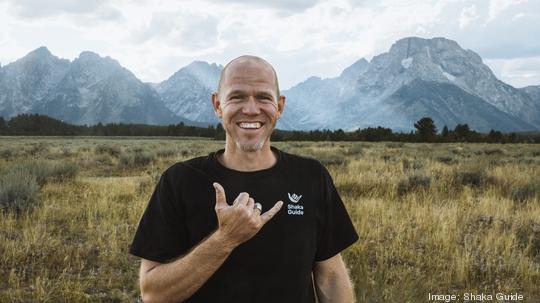
TurnoverBnB
Created in 2016 by Assaf Karmon and Tim Roy during an MBA course at University of Hawaii’s Shidler College of Business, TurnoverBnB is a software-as-a-service platform that allows users to find, schedule and pay cleaners for vacation rental properties.
“We wanted to apply our skills to create a company that would grow to become a global leader. We focused on vacation rentals because we were involved in the industry and loved how dynamic and innovative it was — and still is,” said Karmon, the company’s CEO.
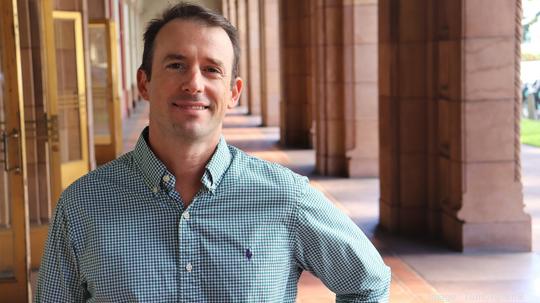
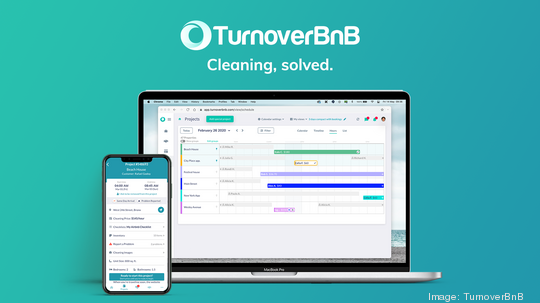
The pair initially bootstrapped the venture, and later raised funding from RET Ventures in Utah, as well as locally based Blue Startups and Hawaii Angels.
Last year, the company tripled its sales, and it continues to grow. Karmon said this year they are focused on “expanding and perfecting our platform to be able to serve more and more individuals and business owners globally.”
“We are proud of the platform that we built, which includes a cleaner marketplace that allows thousands of people to build businesses and support their families. It has been rewarding to see the success stories of entrepreneurs who have been able to use our platform to turn their ideas and hard work into thriving businesses,” he said.
WAI: Wastewater Alternatives & Innovations
After working to improve Hawaii’s water quality during his 12-year tenure leading the local chapters of the Surfrider Foundation, Stuart Coleman founded WAI: Wastewater Alternatives & Innovations to tackle what he says is one of the state’s most pressing water quality problems: cesspools.
“We have 83,000 cesspools that discharge 52 million gallons a day of untreated sewage into the ground and our groundwater,” Coleman said.
In 2017, the state legislature mandated that all cesspools be converted into state-approved wastewater systems by 2050. But as Coleman points out, there wasn’t an organization dedicated to helping communities achieve that goal, so he launched WAI in 2019.
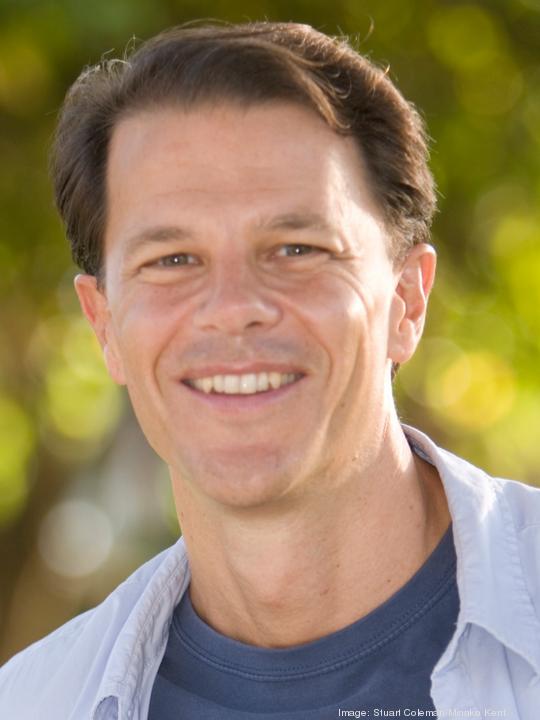
WAI exists to, as Coleman said, “find solutions for Hawaii’s cesspool crisis,” and it does this through seeking funding sources to aid homeowners in upgrading cesspools, introducing new, eco-friendly sanitation technology to the Islands, and conducting community outreach.
“One of the biggest challenges for homeowners and for the state is trying to find the money to pay for these conversions,” Coleman said.
“We really want to help bring down the cost of these cesspool conversions and then also make sure [the new systems] are more efficient, because in the face of sea level rise, all that untreated effluent could go right into the groundwater and … into the ocean.”
The nonprofit also addresses policy issues, and during the last state legislative session, it was instrumental in getting a bill passed that will offer up to $20,000 in rebates to help homeowners convert cesspools on their property.
Next up, the nonprofit is building a new workforce development program for the wastewater sector.
“It will create training courses to get people in this field, because we’re going to have to multiply our workforce dramatically to meet the challenge of replacing over 80,000 cesspools across the state,” Coleman said.
“We think this is going to be a big market,” he continued. “[These jobs] will pay a living wage, and they won’t have the boom and bust cycle of construction projects, or sometimes tourism, as we saw during the pandemic.”
Classes for the program, Workforce-4-Water, are slated to begin in the fall at Hawaii Community College and Maui College.
